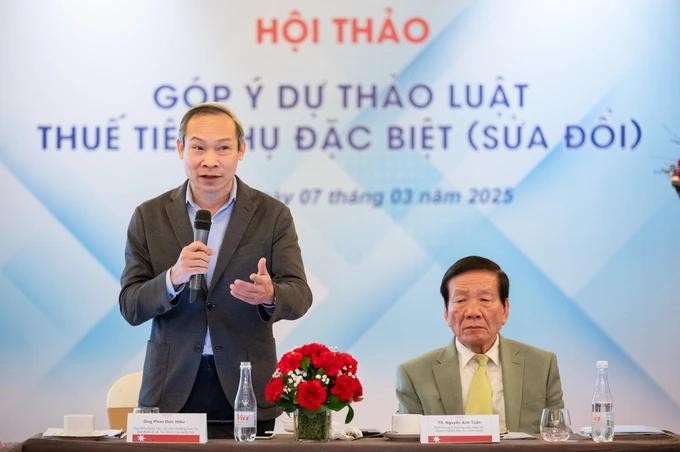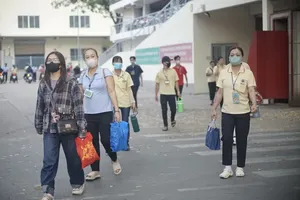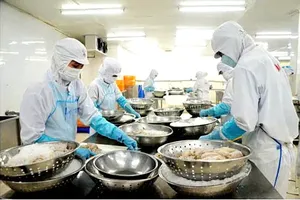
The impact of the imposition of special consumption tax (amended) is forecasted to be quite large. The sudden adjustment of tax can greatly affect the production and business activities of enterprises and the economic growth target.
At the conclusion of the workshop on providing feedback on the draft amendments to the Law on Special Consumption Tax, organized by the Association of Foreign Investment Enterprises in Hanoi yesterday, Phan Duc Hieu, a member of the NA Economic and Financial Committee, emphasized that expert opinions, along with input from business representatives and associations, indicate that the impact of the proposed tax adjustments could be significant.
He noted that abrupt changes to the tax structure could severely affect business operations and production while potentially hindering economic growth targets.

According to Chairman Nguyen Van Viet of the Vietnam Beer, Alcohol and Beverage Association, the amendment to the Law on Special Consumption Tax has concerned enterprises in the industry. Chairman Viet noted that since the Covid-19 pandemic, consumer spending has tightened.
As a result, the beverage industry has seen a decline in demand, especially during the last months of 2024 and early 2025, including the Lunar New Year period.
Mr. Nguyen Van Viet stated that the beverage industry is currently drawing significant foreign investment from multinational companies based in developed countries in Europe and America. These companies are dedicated to implementing modern production and processing technology, thus driving the industrialization and modernization of the beverage sector. However, the current proposal to increase the special consumption tax may impact the investment environment and diminish the confidence of both domestic and foreign investors.
In a press statement, Mr. Viet cited a research report that assessed the quantitative impact of the proposed increase to the special consumption tax. He emphasized that while both options in the draft law could boost short-term budget revenue, they would also reduce the industry's added value and negatively impact GDP in the medium to long term.
Chairman Nguyen Mai of the Association of Foreign Invested Enterprises (VAFIE) said that fiscal policy, including domestic tax and tariff policies, must ensure harmony of interests between the state and enterprises; both increasing budget revenue reasonably and creating conditions for businesses to accumulate capital to expand production, train and foster high-quality human resources; digital transformation.
The sudden adjustment of special consumption tax rates can reduce purchasing power, negatively affecting the production and business activities of enterprises and the overall development of the economy, according to Phan Minh Thuy of the Legal Department at the Vietnam Chamber of Commerce and Industry (VCCI).
According to this expert, the tax increase roadmap could be considered starting in 2028. She suggested that the current amendment to the Law on Special Consumption Tax should focus on establishing principles for adjusting the maximum tax rate or modifying the scope of taxable goods while empowering the Government to develop a detailed roadmap for tax rate adjustments.
Beyond tax changes, she emphasized the need for a comprehensive approach, including public awareness campaigns, stricter advertising controls, age regulations for products harmful to health, and stronger anti-smuggling measures.
























